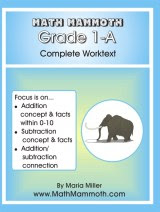I would like to know a simple activity that i could do with a grade 2 student, which involves using the calculator. Here are a few ideas. Hopefully they are of help. Add or subtract the same number repeatedly. For example, start with 5, subtract 1 several times, and let the child see what happens -- he/she will get to negative numbers! Similarly, ask the student to start with 40 and subtract 10 repeatedly. Some children will be surprised at the negative numbers they will see -- but many will be able to understand the basics of how they work, just from simple calculator activities like these. Start with any 2-digit number and add 100 repeatedly. For example, starting with 17, your 2nd grader will see the sequence 17, 117, 217, 317, 417, and so on. Start with a 3-digit number and subtract 50 repeatedly. Again, you will get a definite pattern. Ask the students to come up with their own patterns where they add or subtract the same number repeatedly. Let them share their patterns

